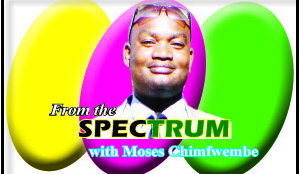 COMPLIMENTS of the season to the sports fraternity across the country and beyond! 2015 has been full of sporting events and mixed results.
COMPLIMENTS of the season to the sports fraternity across the country and beyond! 2015 has been full of sporting events and mixed results.
I, therefore, sign out of this year with a word to the coaches.
The coaching profession is ever-changing and coaches at each level of sport competition need to know more than just the common techniques in order to be successful.
As the primary individuals tasked with developing athletes and helping them achieve their goals, coaches should acquire a working knowledge of all areas affiliated with performance enhancement.
With the 2015 chapter closing this week and a new one coming forth, coaches, athletes and administrators will set targets on what they hope to achieve next year.
Specifically, the disciplines of sports administration, strength and conditioning, and sports psychology can assist coaches while physically and mentally training their athletes.
It is imperative that coaches gain familiarity with some of the most important components in order to teach athletes about skills development and prepare them to achieve peak performance.
From time immemorial, athletes have always sought to acquire the skills and knowledge of sport in order to become ‘champions’.
However, with the evolution of sport into a more organised activity than before, coaches are now working more closely with athletes on skills development.
Education and training programmes have been created in an effort to assist coaches and athletes with the development of methods and strategies for achieving peak performance.
A few lucky athletes such as Boas Munyonga, Mathews Punza, Kabange Mupopo and Sydney Siame have undergone skills development at high performance centres in Europe under the auspices of the National Olympics Committee (NOC).
For the coaches on the local scene, a number of coaching clinics have been conducted, but it is important to take note of the essential elements of athletics coaching when designing a coaching education programme.
The most common fundamentals of athletics development include stamina, strength, flexibility, agility, speed and skill.
These areas focus on sports administration, coaching methods, strength and conditioning, and athlete development.
With the addition of these new disciplines, training athletes has become a holistic activity focusing on the entire athlete.
The ability to communicate is a critical component in becoming a successful coach and developing elite athletes. Therefore, our coaches must be exceptional communicators with their athletes in order to be effective teachers.
In many spheres of life, communication is widely acclaimed to be a firm foundation on which to build trust between two individuals or teams, and sports coaches have always valued the importance of this component in building winning teams.
As a matter of fact, effective communication is often cited as a critical element in the success of athletes.
Coaches can be extremely knowledgeable in the technical skills of the sport and have the perfect game plan, but if they cannot communicate this information to their team effectively, then the likelihood of a victory will be greatly reduced.
Awareness in sport is very important. Coaches need to be aware that athletes should develop a series of short-term goals which allow measurable progress towards achieving a long-term goal.
Some coaches use motivational techniques when establishing their athletes’ training schedules. One technique which has been used to promote commitment, perseverance, dedication, and effort to create an individual’s long-term self-motivation is goal setting.
Coaches should realise that group goal setting may be an effective strategy for enhancing group performance in sport and physical activity.
For instance, members of a team may establish a goal to score a certain number of goals or points in a particular season.
As we close the year and look forward to the new one, goal setting will greatly help our teams and athletes attain the desired results at the end of the coming season.
It must be noted that coaching education includes knowledge from several disciplines.
The nature of the job of a coach is affected by the athlete’s stage of development which determines what kind of knowledge the coach needs, and how it will be applied.
The final piece of the coaching puzzle centres on how to make the coaching process athlete-centered. No matter what the specific training discipline is, a coach needs to understand the stages of athletic development in addition to the knowledge of how individuals grow and mature.
It will be cardinal for our coaches to plan big for the next calendar year and ensure that athletes aim for a podium performance.
I wish you a prosperous 2016!
For comments: moseschimfwembe@gmail.com






